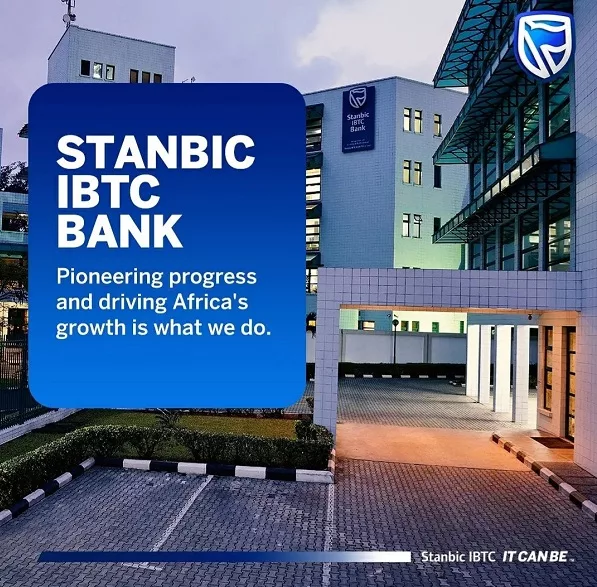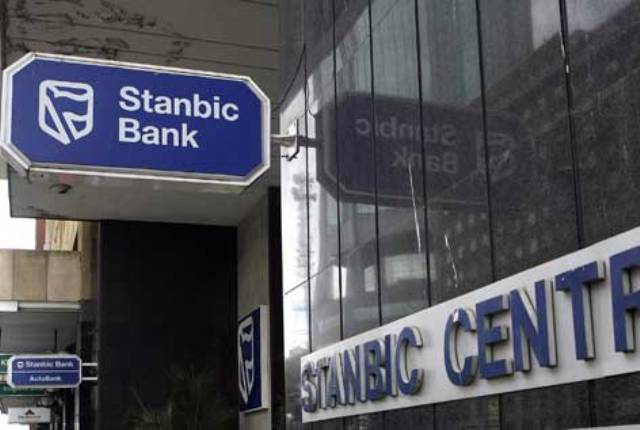Business
Special Report Indicts Stanbic IBTC, Others In Insider Loan Mess

Special Report Indicts Stanbic IBTC, Others In Insider Loan Mess
Stanbic IBTC has been identified as one of the banks that lead as far as insider loans are concerned.
A report spanning five years, which was spotted by www.theoctopusnews.com, revealed that the bank’s directors and key management personnel were responsible for obtaining the said loans.
According to the report by Punch Newspaper, directors and key management personnel of Deposit Money Banks (DMB) borrowed about N549 billion from their financial institutions in five years.
The information was gleaned from an analysis of the banks’ annual reports filed with the Nigerian Exchange Limited between 2019 and 2023.
The report, however, noted that the banks’ loans and advances to some directors and key management personnel as well as related party transactions dropped significantly in 2023.
The transactions dropped to N52.40bn for eight financial institutions compared to N111.31bn in 2022, indicating a 52.92 percent decline in one year.
The drop was, however, neither deliberate nor due to caution by the financial institutions, but attributed to new corporate governance regulations implemented by the Central Bank of Nigeria (CBN), which went into effect on August 1, 2023.
In the circular dated July 13, 2023, and signed by Director, Financial Policy and Regulation Department, Chibuzo Efobi, the guidelines, which imposed responsibilities on the bank board and the executive compliance officers, superseded other previous codes, circulars, and related directives, according to the apex bank.
The CBN guidelines on related party transactions said, “Banks shall establish a policy concerning insider trading and related party transactions by directors, senior executives, and employees, as well as publish the policy or a summary of that policy on their website. 22.2 The policy shall contain appropriate standards and procedures to ensure it is effectively implemented. 22.3 In addition to the requirements in Section 22.2, there shall be an internal review mechanism carried out by the internal audit function of the bank to assess the compliance and effectiveness of the policy.
“22.4 Any director whose facility or that of his/her related interests remains nonperforming in any financial institution for more than one year shall cease to be on the board of the bank and shall be blacklisted from sitting on the board of such bank and that of any other financial institution under the purview of the CBN. 22.5 No director-related loans and/or interest thereon shall be written off without the CBN’s prior approval.”
Leading the pack in terms of a major decline in loans to related parties and entities controlled by key management personnel was Fidelity Bank Plc, which went from N92.31bn at the end of December 2022 to N2.09bn at the end of last year.
In footnotes, the bank, however, said that some of the related parties, like A-Z Petroleum Limited, Dangote Group, and Genesis Group, as of December 31, 2022, had “exited the related party relationship post-2022 financial year in line with the CBN requirement.”
Between 2019 and 2020, a total of N226.6bn was disbursed as loans. In 2019, eleven banks borrowed their key management personnel for a total of N29.65bn. The figure also includes loans to companies related to the directors.
Some of the banks listed in the analysis that lent to related parties include Stanbic IBTC (N95m), FCMB (N4.8bn), Unity Bank (N7.14bn), and Sterling Bank (N10.12bn).
In 2020, the figure increased by 564 percent, or N167.32bn, to N196.97bn.
Checks showed that Access Bank lent the most, with a total of N174bn, to its directors and companies related to them. This was followed by Unity Bank with N7.55bn. Third on the list was Sterling Bank with N6.01bn.
Other banks that borrowed it’s directors money include Wema Bank (N2.82bn), Stanbic IBTC (N332m), FCMB (N3.2bn), Unity Bank (N7.55bn), and Sterling Bank (N6.01bn).
“If an organisation feels that the insider or director can pay the loans given to them, then there is no issue. It is when they do not pay that there will be issues.
“Like what is happening now in the economy, banks are not giving loans to ordinary companies unless they have names because of economic headwinds. If they give loans to the public and they are unable to repay them, non-performing loans will rise. If the banks offer to insiders that would pay, it is better for them,” the Chief Research Officer at InvestData Consulting, Ambrose Omordion, said of the trend.


